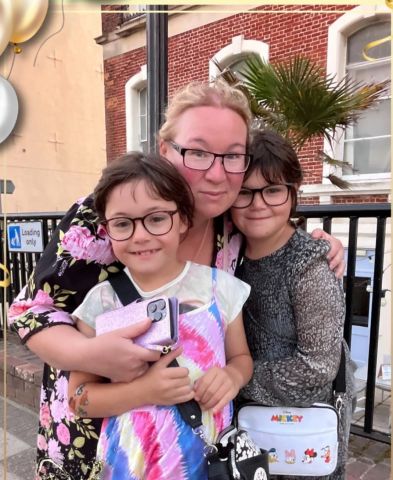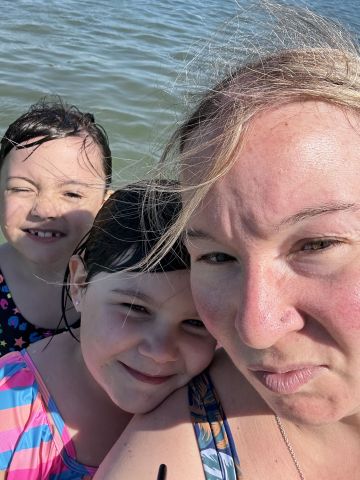Bereavement Support Payments: A lifeline for Stacey on Valentine’s Day
February 2025
This Valentine’s Day marks two years since Stacey, a widowed mum from Somerset, received the financial support that helped her and her two daughters navigate life after her fiancé Matt died. For Stacey, 38, the retrospective Bereavement Support Payment (BSP) payments provided a much-needed lifeline that allowed her to regain stability after Matt died.

“In October 2018, when our children were two and four, my partner of exactly 5.5 years left the house one day and didn’t come back. He was killed in a road traffic accident, and our lives changed forever,” Stacey recalls.
Before Matt died, money wasn’t a problem. “I didn’t need to worry about money as we both worked full-time, on a decent wage,” she explains. Stacey had worked since she was 16 and had a good job in sales. But suddenly, she found herself alone, juggling grief, childcare and the daunting reality of managing household finances without her partner’s income.
“It was not easy establishing this weird, new life for myself and the children – as well as getting used to having to rely on Universal Credit to top up my wages and make ends meet,” she says.
To add insult to injury, because Stacey and Matt weren’t married, she wasn’t entitled to receive any bereavement benefits at that time – but two years ago (on 8 February 2023), the law was changed to extend payments to cohabiting parents, thanks to campaigning by WAY Widowed and Young and other charities.
Two-year anniversary

Two years ago this week, on Valentine’s Day, Stacey finally received the funds into her bank account. The timing of the retrospective payments – the funds she should have received when Matt died, if they had been married, based on his National Insurance contributions – was bittersweet.
“I didn’t think that moment would ever come,” admits Stacey.
The financial relief of receiving payments amounting to several thousand pounds was a huge help. “Having BSP helped me pay off bills I wouldn’t have been able to pay off,” she acknowledges. “We went on holiday to Weymouth without having to worry about how I was going to find the spending money,” she says. “And have been to Weymouth every year since.” The financial cushion also allowed her to replace her failing car and cover insurance payments without spiralling into debt as well.

Reflecting on the campaign she was part of, which helped push for changes in bereavement benefits, she admits she never expected it to help her. “We campaigned about it and took a load of signatures to 10 Downing Street, not long after Matt had died,” she says. “I was always under the assumption that if it helped anyone else, then that’s all that mattered.”
“Considering we went from nothing to something, it’s a big step, but more help should be given,” she says. “We’re bringing up children on one wage, and that is tough.”
As her eldest prepares for secondary school, Stacey worries about the rising costs. “Everything gets more expensive as they grow older – school trips, clubs, uniforms. It’s just managing everything, spinning plates.”
But on the two-year anniversary of Bereavement Support Payment being extended to cohabiting couples, Stacey remains grateful for the help it provided to her family. “It was such a breather because I didn’t really have any savings,” she says. “It’s nice to have a buffer.”

Your donations are always welcome.
Donate